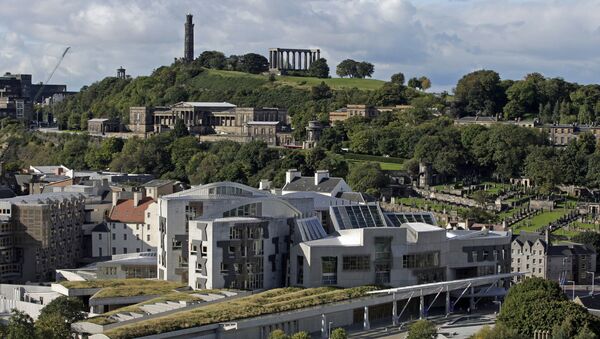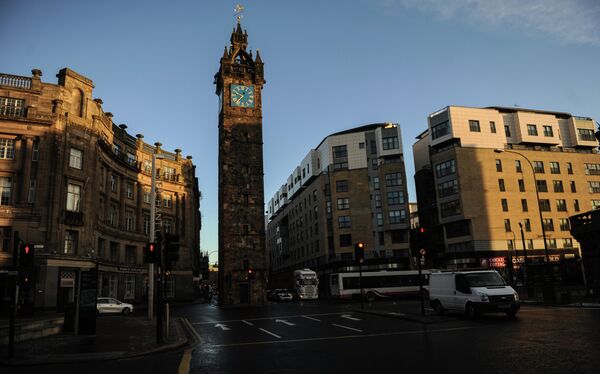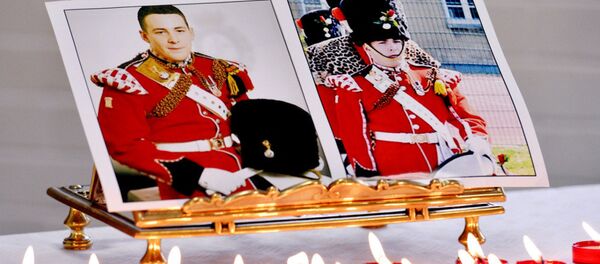Twenty years ago this week, on September 11, 1997, 75% percent of Scottish voters voted in favor of devolution in a referendum delivered by Tony Blair's Labour government.
The Scottish National Party (SNP), which is now the third-largest party in the UK, had campaigned for Scottish independence for decades. Following the discovery of North Sea oil in the 1970s, the party's slogan "It's Scotland's oil" propelled it to a record 11 MP's in the 1974 general election.
Although Scottish voters rejected devolution in a referendum in 1979, the issue never really went away, leading policymakers to devise models for how a Scottish parliament might work, Dr. Craig McAngus, lecturer at Department of Politics and International Relations at the University of Aberdeen, told Radio Sputnik.
"In the 1980's, we had a Conservative government led by Margaret Thatcher as Prime Minister, which became increasingly unpopular both in terms of its policy program and also the way it was perceived to treat Scotland."
In the 1970's, the Labour Party had been split over the devolution issue but in the 1980's key figures such as Gordon Brown, Robin Cook, George Robertson, Donald Dewar and John Smith led the party to back the idea.
However, some Scottish Labour party politicians such as Tam Dalyell remained opposed to the idea, believing it to be "a route to Scottish independence."
"For some Unionists, who were very skeptical of devolution, it was potentially the beginning of the end for the Union and those fears may well ultimately be realized."
In the 1980's, an association of Scottish political parties, trade unions, civic organizations and the church formed the Scottish Constitutional Convention (SCC), which developed a framework for Scottish devolution.
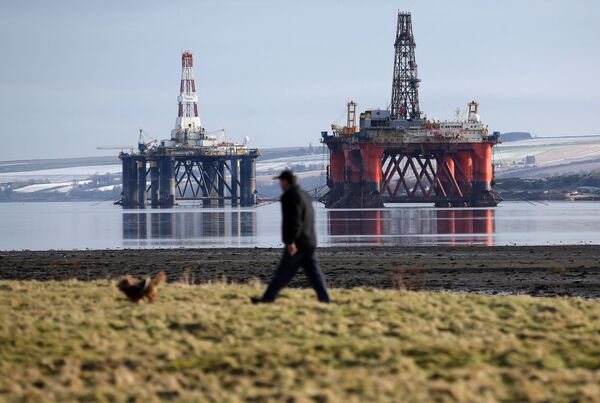
"It wasn't just to mimic the Westminster form of government. The whole idea in that period was to have something that would promote a type of politics that was not the type of politics that was promoted at Westminster," McAngus explained.
The SCC saw the Scottish parliament as something more open and inclusive than the Houses of Parliament, aiming to be more inclusive, better engaged with stakeholders in civil society, less adversarial and more encouraging of minority and coalition government.
In practice, the achievement of these aims has been a "mixed bag." On the one hand, all but one of the governments of the past 20 years have been minority or coalition governments, which in theory should make the executive less able to dominate the legislature.
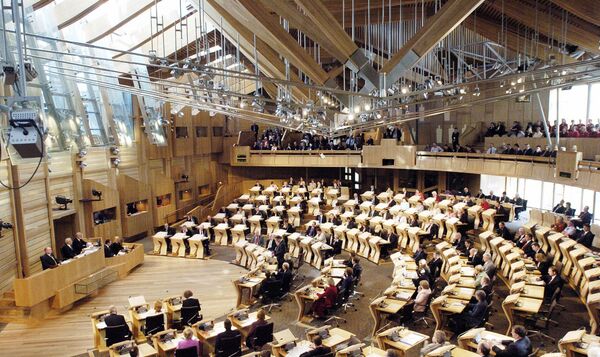
"The other thing is that the adversarial nature of Westminster politics has been pretty much transplanted into the Scottish parliament and is probably more intense."
The SNP currently has the most seats in the House of Commons and most of the Scottish seats at the UK parliament in Westminster. As the Labour Party has waned in Scotland amid its "managerial approach" to politics, the SNP, which also follows a center-left political agenda, has gained in popularity.
"The SNP's main focus was the Scottish parliament, they put a lot of resources and emphasis on that and its 'big political beasts' were operating in Edinburgh, whereas the 'big political beasts' in the Labour Party were operating in London. The Gordon Browns etc. weren't really that interested in the Scottish parliament."
"The SNP really got their act together, that's probably the biggest factor."
In 2011, the SNP won a parliamentary majority for the first time, which made a referendum on Scottish independence, a central plank of the party's manifesto, inevitable.
There were many people who voted for the SNP in general elections who were not in favor of independence, but they were persuaded to do so by the party's perceived competence in government and the promise of a referendum in which they would have the chance to vote against independence.
In the referendum in September 2014, 55.3% of voters voted against independence, with 44.7% in favor. The turnout was 84.6%, the highest ever for a referendum or election in the UK since the advent of universal suffrage.

"I don't think anybody back in 2010 or 2011 thought that independence was likely, but we did have the referendum in 2014 and we all know the result."
The Scottish Conservative Party, which was completely wiped out in Scotland in 1997, regained relevance in Scotland following the 2014 referendum with a "very clear message" to voters.
"They have positioned themselves as the Unionist opposition to the SNP and the Unionists that will actually stand up for the Union, rather than the Labour Party, who have been a bit wobbly on constitutional matters according to the Conservatives."
In June 2016, the UK held a referendum on EU membership in which 51.89% of voters across the UK voted in favor of leaving. However, in Northern Ireland and Scotland, a majority of voters voted to stay.
While the SNP leadership believed that the issue could bolster support for independence, it hasn't happened that way. Some Scottish nationalists are anti-EU as well as anti-UK, while not enough remain voters have been persuaded that leaving the EU would be worse than leaving the UK.
"I think the legacy of Brexit has obviously forced the issue of the independence referendum and that is what has helped the Conservatives."
"In terms of living up to the heights [of expectations], I think if you went back 20 years and asked people what they thought devolution would achieve and then you looked at their answers now, they would probably be disappointed. But that's the nature of liberal democracies, policy change and any sort of great change is often very incremental and I think sometimes people expect a little bit too much of their political institutions to bring about rapid change."
"If you look at some of the landmark policies, such as the smoking ban, that has had an impact on the number of people that smoke … the [decision not to implement] tuition fees obviously has a legacy."
"I think you can't shy away from the general cultural impact and the impact on the national psyche that having a parliament creates. It opens up a political space that didn't exist before and I think the Scottish parliament was to go away, that would be missed."
"There are big gaps between rich and poor in Scotland, the UK is a very unequal country," McAngus said.
Last year, more taxation powers were transferred to the Scottish parliament from Westminster, but it could be argued that MP's in Scotland could have done more to improve the situation with the policy levers they did have.
"You could argue that the Scottish parliament could have maybe done more to alleviate social disadvantage and it has maybe been timid and a bit conservative in that regard."
